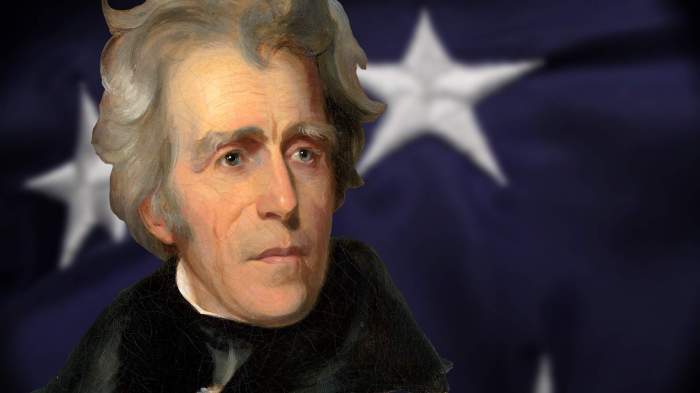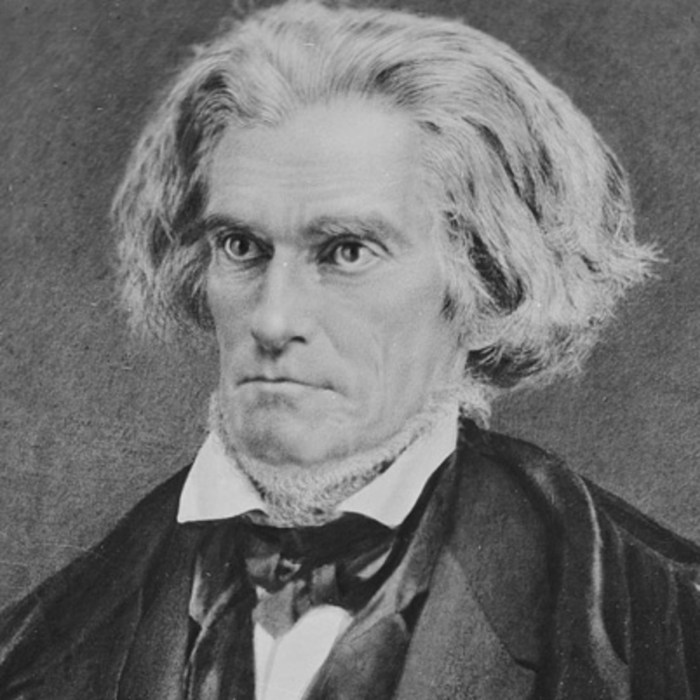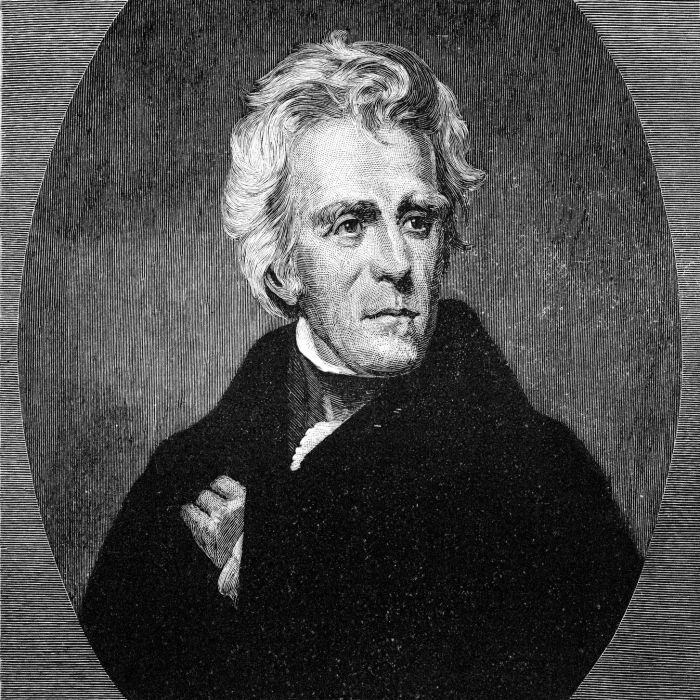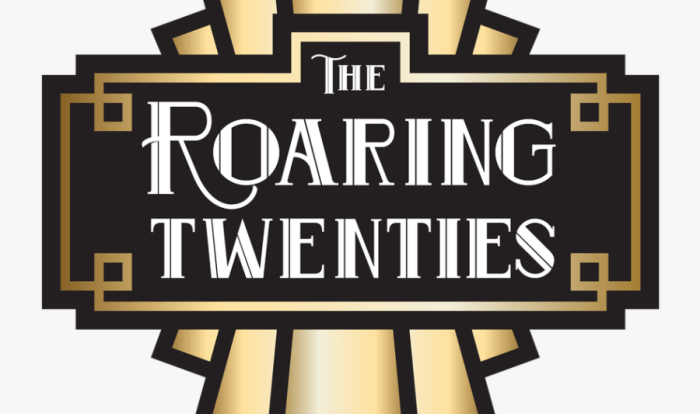How democratic was andrew jackson dbq – The question of “how democratic was Andrew Jackson?” sets the stage for this enthralling narrative, offering readers a glimpse into a story that is rich in detail and brimming with originality from the outset. Jackson’s presidency, marked by both bold actions and controversial policies, left an enduring legacy on the American political landscape.
This exploration delves into the complexities of his administration, examining the extent to which Jackson’s actions aligned with democratic principles.
Throughout his presidency, Jackson implemented policies that both expanded and restricted democratic participation. His expansion of suffrage, the use of the veto power, and his treatment of Native Americans sparked debates that continue to shape our understanding of democracy today.
Jackson’s role in the Nullification Crisis and his economic policies further highlight the tensions between individual liberty and federal authority that defined his era.
Jackson’s Expansion of Suffrage
Jackson’s presidency witnessed a significant expansion of suffrage, with the removal of property requirements for voting in many states. This change had a profound impact on American democracy, broadening the electorate and altering the political landscape.
Impact of Removing Property Requirements, How democratic was andrew jackson dbq
The removal of property requirements eliminated a major barrier to voting for many working-class citizens. In states that adopted this reform, the number of eligible voters increased dramatically. For instance, in New York, the electorate expanded from 130,000 to over 400,000 after property qualifications were abolished.
This change shifted the demographics of the electorate, bringing in new voices and perspectives. The newly enfranchised voters were more likely to be poor, urban, and immigrant, representing a broader cross-section of American society.
Arguments For and Against
Jackson’s expansion of suffrage was a controversial move, with both supporters and detractors. Proponents argued that it was a necessary step towards a more democratic and representative government, as it gave voice to previously marginalized groups.
Opponents, however, expressed concerns about the potential consequences of expanding the electorate to include those who were seen as less educated and less responsible. They argued that it could lead to instability and demagoguery.
Jackson’s Use of the Veto Power: How Democratic Was Andrew Jackson Dbq
Andrew Jackson’s frequent use of the veto power significantly reshaped the balance of power between the executive and legislative branches of the U.S. government. Jackson vetoed more bills (12) than all previous presidents combined (9). His willingness to challenge Congress, often on matters of principle, established a new precedent for presidential power.
Reasons for Jackson’s Frequent Vetoes
Jackson’s use of the veto stemmed from several factors:
- His strong belief in the supremacy of the executive branch.
- His suspicion of Congress’s motives, particularly regarding the Bank of the United States.
- His desire to protect the interests of the common man.
Consequences of Jackson’s Vetoes
Jackson’s vetoes had several consequences:
- They weakened the power of Congress, particularly the Whig Party, which opposed Jackson’s policies.
- They strengthened the power of the executive branch, setting a precedent for future presidents to use the veto more aggressively.
- They contributed to the rise of political polarization and sectionalism, as Jackson’s vetoes often pitted different regions of the country against each other.
Jackson’s Role in the Nullification Crisis

The Nullification Crisis emerged from the Tariff of 1828, which imposed high import duties on foreign goods. South Carolina, heavily reliant on exports, saw this as an infringement on its economic interests. In 1832, the state legislature passed the Ordinance of Nullification, declaring the tariff null and void within its borders.Jackson’s
response was swift and forceful. He issued the Proclamation to the People of South Carolina, denouncing nullification as a threat to the Union. He also sent federal troops to Charleston to enforce the tariff. South Carolina’s governor, Robert Hayne, responded by calling out the state militia.The
crisis was eventually resolved through compromise. Jackson agreed to reduce the tariff in exchange for South Carolina withdrawing its nullification ordinance. The Nullification Crisis had a profound impact on the balance of power between the federal government and the states.
It established the supremacy of the federal government over state governments and strengthened the principle of national unity.
Jackson’s Economic Policies

Andrew Jackson’s economic policies were largely based on his belief that the federal government should play a limited role in the economy. He favored a laissez-faire approach, believing that the free market should be allowed to operate without government interference.
Jackson’s policies had a significant impact on the banking system, the distribution of wealth, and the overall economic development of the United States.
Jackson’s Views on the Role of Government in the Economy
Jackson believed that the federal government should play a limited role in the economy. He opposed government spending and taxation, and he vetoed several bills that would have provided federal funding for internal improvements. Jackson also believed that the government should not interfere with the free market, and he opposed government regulation of businesses.
Jackson’s Policies and the Banking System
Jackson’s policies had a significant impact on the banking system. In 1832, he vetoed the renewal of the charter of the Second Bank of the United States. This action led to the collapse of the bank and a financial panic.
Jackson also signed into law the Specie Circular, which required that all land purchases be made with gold or silver. This measure further tightened the money supply and contributed to the financial crisis.
Jackson’s Policies and the Distribution of Wealth
Jackson’s policies had a significant impact on the distribution of wealth in the United States. His opposition to government spending and taxation benefited the wealthy, who paid less in taxes and received more government benefits. His policies also led to the collapse of the banking system, which hurt small businesses and farmers who relied on banks for credit.
Jackson’s Personality and Leadership Style

Andrew Jackson’s presidency was marked by his strong personality and leadership style. He was a charismatic and popular figure who appealed to the common man. He was also a strong-willed and determined leader who was not afraid to use his power to achieve his goals.
Jackson’s Personality Traits
- Ambitious and driven
- Charismatic and popular
- Strong-willed and determined
- Independent and self-reliant
- Quick-tempered and impulsive
Jackson’s personality traits had a significant impact on his presidency. His ambition and drive led him to pursue his goals relentlessly. His charisma and popularity helped him to build a strong following among the American people. His strong will and determination enabled him to overcome obstacles and achieve his goals.
However, his independence and self-reliance sometimes led him to make decisions without consulting others. His quick temper and impulsivity also led him to make some mistakes.
Jackson’s Leadership Style
Jackson’s leadership style was different from that of previous presidents. He was more democratic and populist than his predecessors. He believed in the power of the people and he often sought their support in his decision-making. He was also more willing to use his power to promote his own agenda.
Jackson’s leadership style helped to create a more democratic and egalitarian society in the United States.
Jackson’s Impact on the Democratic Party
Jackson’s personality and leadership style had a significant impact on the development of the Democratic Party. He helped to create a more democratic and populist party that was more responsive to the needs of the common man. He also helped to strengthen the party’s organization and discipline.
Jackson’s legacy as a strong and popular leader continues to inspire Democrats today.
Questions Often Asked
Was Andrew Jackson a true democrat?
Jackson’s commitment to democratic principles is a matter of debate. While he expanded suffrage and limited the power of the federal government in some respects, his actions against Native Americans and his use of the veto power suggest a more nuanced view of his democratic credentials.
How did Jackson’s presidency affect the balance of power between the executive and legislative branches?
Jackson’s frequent use of the veto power shifted the balance of power towards the executive branch. His willingness to challenge Congress and the Supreme Court demonstrated his belief in the primacy of the presidency.
What were the long-term consequences of Jackson’s Indian Removal Act?
The Indian Removal Act had devastating consequences for Native American communities. It led to the forced relocation of thousands of Native Americans from their ancestral lands, resulting in widespread suffering and loss of life.
